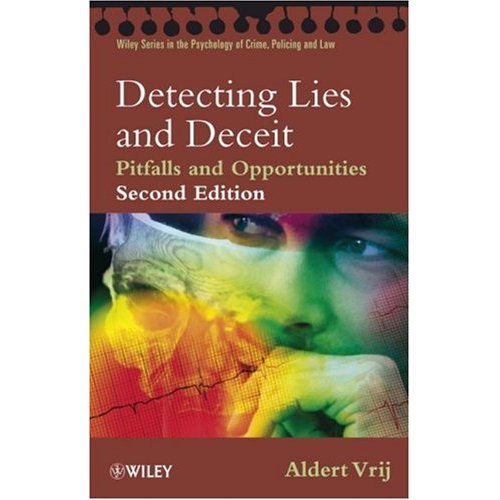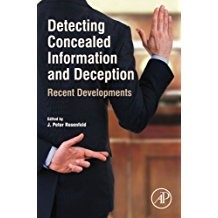

 |
"Students like my lab course..."
|
CONTENT: This is course in which we review the occurrence of deception, the influences which generate deception, and methods of detecting deception.
PREREQUISITES: Psychology 110 or equivalent. Psychology 201 is recommended..
TEACHING METHOD: Lecture and discussion.
EVALUATION METHOD: Two Exams, non-cumulative.
Psych 323. Deception: Psychology & Psychophysiology
 |
Vrij, Aldert (2008) Detecting Lies and
Deceit: Pitfalls and Opportunities (Wiley Series in Psychology of Crime, Policing and Law) (Paperback)
|
 |
J. Peter Rosenfeld (2018). Detecting Concealed Information and Deception: Recent Developments Academic Press (Elsevier) . Publisher information for Detecting Concealed Information and Deception: Recent Developments |
|
|
PowerPoint Presentations:
Last Update: